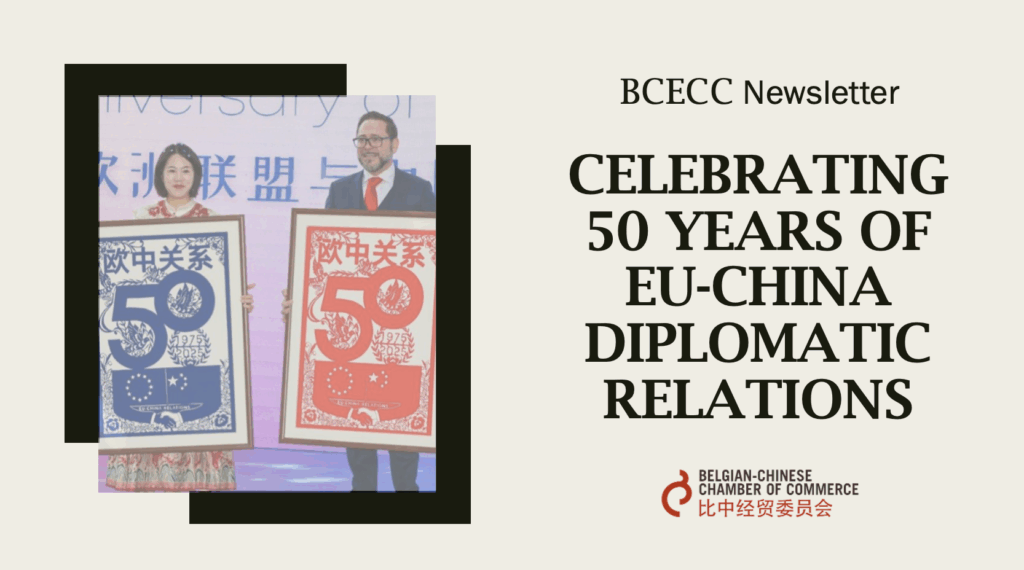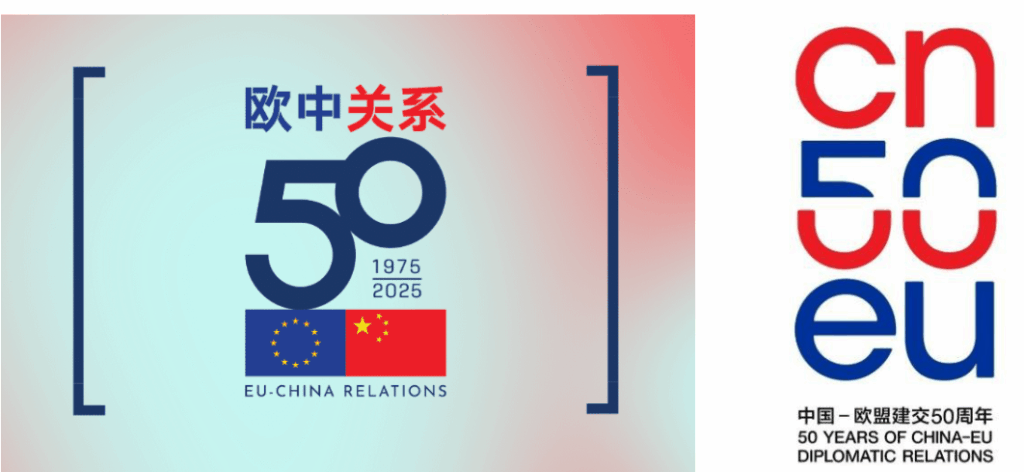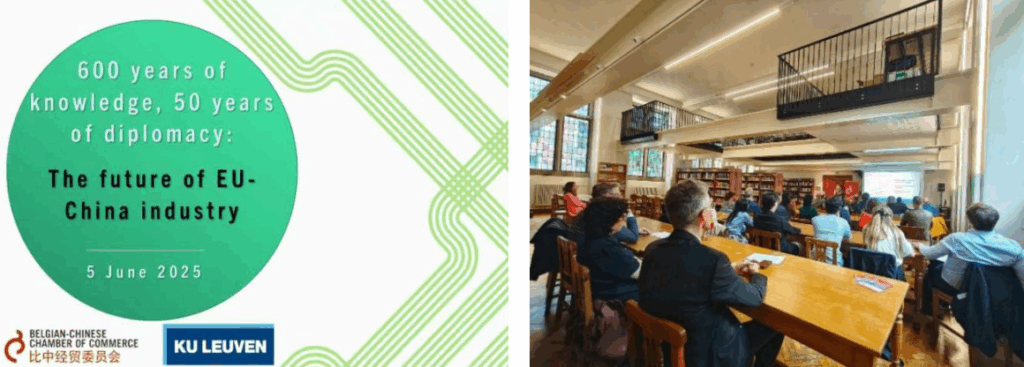
In May 2025, the European Union and China celebrated the 50th Anniversary of the Establishment of China-EU Diplomatic Relations. On May 6, 2025, the Chinese Mission to the EU hosted a reception in Brussels in the presence of Ambassador Cai Run, Head of the Chinese Mission to the EU, and Olof Skoog, Deputy Secretary-General of the European External Action Service (EEAS).
On the same day, the Delegation of the European Union to China organized a reception in Beijing, hosted by the EU Ambassador to China Jorge Toledo, and welcoming Vice Foreign Minister Hua Chunying.
All speakers testified that, over the past 50 years, the EU-China relationship has withstood the test of shifting global dynamics, recognizing China-EU diplomatic relations as one of the most important bilateral ties in the world. Both sides expressed their willingness to deepen their partnership, enhance communication and collaboration, and jointly uphold multilateralism amid the changing geopolitical landscape to promote greater progress in China-EU relations.

A Brief Historical Overview
Fifty years ago, the first engagement at political level between China and the European Community, which was later to become the European Union, took place. Sir Christopher Soames, at that time the Commission Vice-President, visited China from 4 to 10 May 1975. During this visit, on 6 May 1975, he and Premier Zhou Enlai agreed to establish diplomatic relations between the European Community and the People’s Republic of China.

At the time, both regions were dealing with profound political and economic transformations. For China, this marked an early step in a journey of reform and opening-up, while Europe was laying the foundations for deeper integration. The subsequent decades witnessed growing engagement across multiple sectors. China’s economic reforms and increasing integration into the global system in the 1980s and 1990s provided fertile ground for expanding ties. The 2003 EU-China Comprehensive Strategic Partnership formalized this relationship, setting a clear framework for cooperation in trade, technology, climate action, and people-to-people exchanges.
Economic ties between the EU and China
China is the EU’s second largest trading partner for goods after the United States, with bilateral trade reaching €739 billion in 2023. This represents a decline of 14% compared to 2022. China is the EU’s third-largest partner for exports and the biggest for imports. The EU-China trade balance has been persistently in favour of China. In 2023, the EU deficit amounted to €292 billion. EU exports to China amounted to €223.6 billion, whereas EU imports from China amounted to €515.9 billion, indicating year-on-year decreases of 3.1% and 18% respectively.
The EU’s current approach emphasizes the importance of “de-risking” its economic exposure while still engaging constructively. This balanced strategy reflects both economic pragmatism and a desire to build more sustainable and resilient value chains. While the Comprehensive Agreement on Investment (CAI), concluded in principle in 2020, has not yet been ratified, both sides continue to explore avenues for strengthening economic dialogue, particularly in high-growth areas such as clean energy, digital transformation, and innovation.
Diplomatic engagement and people-to-people exchanges
Diplomatic relations between the EU and China are multifaceted and continue to adapt to a changing global landscape. Both parties have expressed a mutual interest in maintaining open channels of communication and working together to address global challenges. Climate change, for example, remains a strong area of collaboration, with ongoing initiatives focused on carbon neutrality, renewable energy, and sustainable urban development. Science and technology are another growing domain of interest. EU-China joint research projects, academic exchanges, and innovation platforms have yielded tangible results in fields like clean tech, AI, and digital connectivity.
Beyond economics and diplomacy, one of the most enduring aspects of the EU-China relationship is the expanding network of people-to-people connections. Over the past five decades, educational exchanges have flourished through programs like Erasmus+ and various Chinese scholarship schemes, while university partnerships have supported collaborative research and dual-degree offerings.
Looking ahead
As the EU and China enter their sixth decade of diplomatic engagement, both face a rapidly changing global environment shaped by new technologies, sustainability imperatives, and shifting geopolitical dynamics. The relationship will likely be guided by a more balanced approach that blends openness with strategic caution, competition with cooperation, and innovation with responsibility.
On 5 June 2025 the BCECC, together with KU Leuven University, organized an event ‘600 Years of Knowledge, 50 Years of Diplomacy: The Future of EU-China Industry’. The distinguished speakers explained how industry policy has evolved over the centuries in both the EU and China, and how these long-standing traditions are shaping current approaches to innovation, sustainability, and economic strategy. With the global industrial landscape shifting rapidly, the participants agreed that the EU and China can learn from one another in navigating the challenges of the 21st century.

The Belgian-Chinese Chamber of Commerce (BCECC), which has proudly supported EU-China cooperation since its founding, believes this milestone offers a unique opportunity to reaffirm our shared commitment to constructive engagement. Please contact us in case you need more information.
Please contact the Belgian-Chinese Chamber of Commerce (BCECC) in case you have any questions.
Best regards,
The BCECC team
